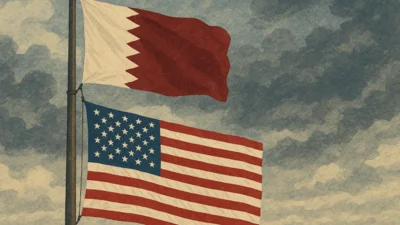Since the outbreak of COVID-19, the U.S. government has committed more than $1 billion worldwide in emergency health, humanitarian, economic, and development assistance aimed at helping governments, international organizations, and non-governmental organizations (NGOs) fight the pandemic, including nearly $112 million for the countries of the Western Hemisphere and over $22 million for El Salvador, Guatemala, Honduras, and Mexico. The United States also continues to partner with El Salvador, Guatemala, Honduras, and Mexico to address the economic, security, and governance drivers of illegal immigration to the United States, particularly given the ongoing health crisis. Enhanced U.S. border restrictions due to COVID-19 balance health protection with essential travel as we address this unprecedented health challenge.
Regional COVID-19 Assistance
Nearly $850,000 in Migration and Refugee Assistance (MRA) in support of regional efforts to help vulnerable migrants, refugees, and asylum seekers, as well as persons in detention in El Salvador, Guatemala, and Honduras. This funding will support efforts to disseminate disease prevention information and distribute hygiene items and disinfectants to prevent further spread of the disease.
As part of our efforts to build capacity in our local partners by sharing our expertise, the Centers for Disease Control and Prevention (CDC) has collaborated closely with multiple ministries of public health on technical issues, including infection prevention and control, as well as surveillance and tracing of contacts.
Throughout the region, CDC has worked with the Council of Ministers of Health for Central America to train 3,000-plus healthcare workers and laboratorians using the ECHO tele-mentoring platform that provides interactive contact with experts, and that will help with advanced vaccine or therapeutic preparedness, and sero-surveillance studies to better characterize patterns of infection, improve infection control materials, and use behavioral science to improve prevention messaging.
El Salvador
Nearly $6.6 million in assistance, including $2 million in International Disaster Assistance (IDA) humanitarian assistance for risk communication, water, sanitation, and hygiene; $2 million in Economic Support Funds (ESF) to address the second-order impacts of the pandemic in El Salvador through creating jobs and increasing access to credit, both critical factors in driving illegal immigration to the United States; and nearly $2.6 million in health assistance to address the pandemic.
On May 26, the United States delivered 250 portable ventilators to El Salvador, which can be used in support of El Salvador’s national response to COVID-19 critical cases.
We have also adapted existing assistance programs to support Salvadorans during this challenging pandemic. This includes redirected USAID funds, including funds the International Organization for Migration (IOM) is using to support COVID-19 quarantine centers and to support reintegration of deportees into their communities once they have completed their quarantine.
As of May 12, in partnership with the International Organization for Migration (IOM), the United States distributed more than 7,500 food kits and more than 1,000 hygiene supplies in El Salvador, mostly to support quarantine shelters for returned Salvadoran nationals and other migrants.
In El Salvador, CDC has briefed the President and Ministry of Health officials on key strategies to mitigate COVID-19 impact, consulted on plans for lab capacity and contact tracing, and is in the process of purchasing critical lab supplies.
Guatemala
More than $8.4 million in assistance, including $6 million in new IDA humanitarian assistance for risk communication and interventions in water, sanitation, and hygiene. This new assistance supplements $2.4 million in previously announced health funding for Guatemala that will strengthen the country’s health institutions to respond to COVID-19 in the areas of preventing and controlling infections in health facilities, disease surveillance, risk communication, and clinical case management.
The United States has helped Guatemala strengthen the supply chain for health commodities and obtain needed COVID-19 testing capability.
USAID has worked with hard-hit smaller businesses to help keep staff employed; expedited the donation of hygiene kits and sanitation supplies to returned Guatemalan nationals; and provided transportation to reunite unaccompanied minors with their families.
We have also adapted existing assistance programs to support Guatemalans during this challenging pandemic. This includes redirected USAID funding to combat COVID-19. The U.S. Department of Agriculture (USDA) has also converted a food donation program.
During COVID-19, USDA has converted a food donation program in Guatemalan schools to “take-home rations," allowing Guatemalans to receive this critical nourishment while staying home. The McGovern-Dole International Food for Education and Child Nutrition Program continues to provide 132,000 school lunches to underprivileged Guatemalan children each school day.
In Guatemala, CDC has provided training on infection control, participated in hospital visits to assess triage procedures, worked to improve contact tracing procedures, and provided approximately $120,000 in emergency lab supplies to Guatemala to assist in fighting COVID-19. In recent weeks, staff supported by CDC worked with the Ministry of Public Health to extend COVID-19 testing to the Quetzaltenango hospital laboratory and are working on a plan to increase overall lab capacity.
Honduras
More than $5.4 million in assistance, including $3 million in IDA humanitarian assistance for risk communication and interventions in water, sanitation, and hygiene; and more than $2.4 million in health assistance to help Honduras respond to the epidemic through laboratory strengthening, improved disease surveillance, and clinical management of COVID-19 cases. Some of these funds will also target infection control in migrant-receiving communities.
The United States has worked in partnership with IOM to strengthen the supply chain for health commodities, to refurbish infrastructure in seven quarantine shelters, and to provide material support in hygiene kits, meals, and clothing to returned Honduran nationals.
In Honduras, CDC has provided ongoing support to the National Lab with requested supplies and provided funding for Rapid Response Teams to conduct contact tracing, supported data clerks, and provided participation from CDC staff in-country on emergency response workgroups.
We have also adapted existing assistance programs to support Hondurans during this challenging pandemic. This includes redirected funds to provide critical supplies for COVID-19 response and enhance health care capacity; bolster strategic communications; sustain education and nutrition, particularly for children and youth; support the safe reintegration of repatriated Hondurans; galvanize private sector support; and promote and support economic recovery.
The United States has also provided cleaning supplies to local governments, as well as thermometers and pulse oximeters to eight health centers and two primary care hospitals.
Mexico
More than $1.8 million in MRA funding to support COVID-19 response efforts for refugees, asylum seekers, and other vulnerable migrants in Mexico. Support includes: distribution of sanitation and personal hygiene supplies at shelters and migratory stations; installation of hand-washing facilities; provision of emergency humanitarian assistance to vulnerable populations; and technical assistance for the Mexican refugee agency COMAR to implement remote registration of new asylum claims and to conduct remote Refugee Status Determination interviews. With this support, COMAR recently doubled the number of remote interviews.
The White House has facilitated Mexico’s purchase of ventilators manufactured by U.S. providers, with hundreds being delivered.
Other Recent Assistance to El Salvador, Guatemala, and Honduras
The U.S. International Development Finance Corporation (DFC) invested more than $500 million in energy, clean water, and inclusive financial services in El Salvador, including a $350 million investment in the Energía del Pacífico natural gas power plant which will supply over 20 percent of El Salvador’s electricity requirements. In January, the United States and El Salvador signed a memorandum of understanding to establish a framework for bilateral cooperation in support of the América Crece initiative, which aims to catalyze private sector investment in infrastructure and energy projects across Latin America and the Caribbean.
In April, the Administration announced $258 million in foreign assistance intended for El Salvador, Guatemala, and Honduras, focused on our continued efforts to decrease irregular migration to the United States; complement implementation of the Asylum Cooperative Agreements; bolster U.S. national security; and provide critical, life-saving assistance in addition to other assistance specifically for COVID-19 response efforts. Of the $258 million, approximately $66 million will be for El Salvador, $87 million will be for Guatemala, $71 million will be for Honduras, and $33.3 million will be dedicated to regional programming benefitting all three countries. Of the total, approximately $138 million is for law enforcement and security purposes.
In May, the Administration moved forward with approximately $52 million of previously paused funding, including $10 million for the Inter-American Foundation, to support governance efforts that build stronger institutions and legal frameworks, and that bolster private sector investment that can enable these countries to build secure and prosperous futures for their citizens at home, particularly in light of the social and economic damage resulting from the ongoing COVID-19 pandemic.
In June, DFC announced a loan of up to $200 million, which will enable Banco Industrial to expand lending to Guatemala’s small and medium enterprises, which are facing a roughly $14 billion credit gap that limits their ability to expand, increase revenues, and create jobs. At least 30 percent of loan proceeds will go to women borrowers.
NOTE: This roundup of assistance from the State Department, USAID, and CDC does not include funding being provided by other U.S. government departments and agencies, including the Department of Defense. COVID-19 foreign assistance is provided in addition to global health funding and overseas humanitarian assistance. Also not included are the generous contributions of private U.S. businesses, nonprofits, charities, faith-based groups, and individuals.
Source: U.S. Department of State, Bureau of Western Hemisphere Affairs









